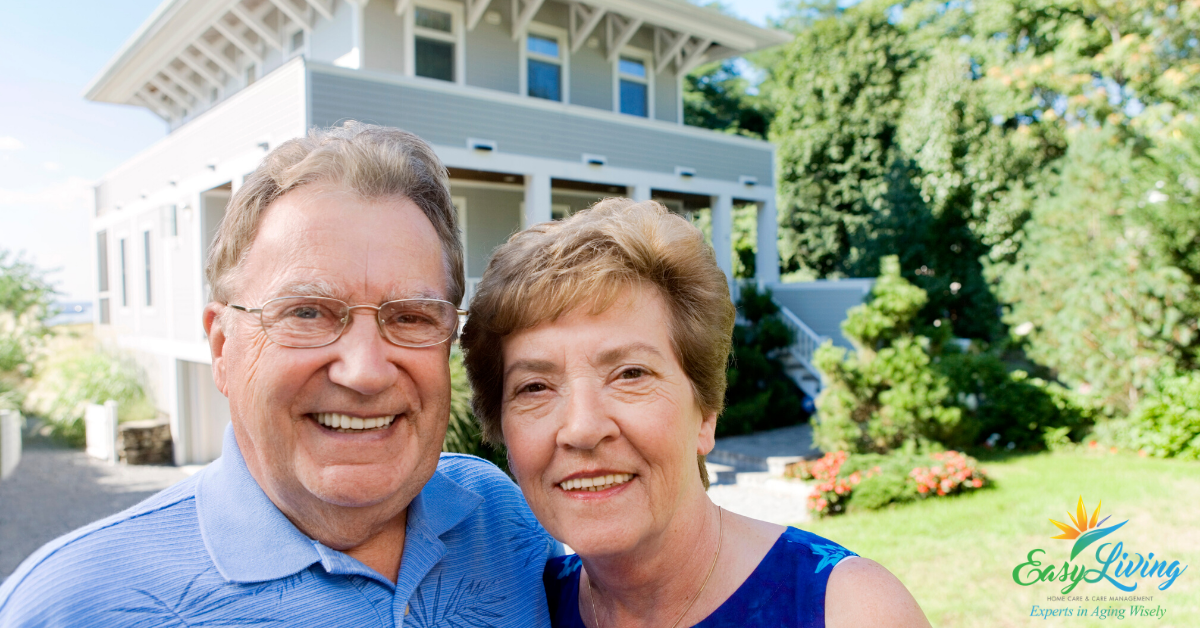You’ve likely heard from loved ones who say they never want to go to a care facility. Actually, over 90% of people want to remain in their own homes as they get older. But, is aging at home sustainable? Are most people able to get their wish?
Only about 5% of the elderly population live in skilled nursing facilities at a given time. However, any senior has about a one-in-four chance of spending some time in a nursing home. An additional 2% of the population are living in assisted living facilities.
Importantly, about 14% of people over 65 have chronic conditions that affect their ability to live independently. These elders will need extra care, but that won’t necessarily stop them from aging at home. Today, there are more options for communities of all types as well as help aging at home. However, almost 50% of people over 95 live in nursing facilities, so clearly aging at home becomes less sustainable with age…especially without taking some key steps.
We commonly see a tug of war on this issue in families. Adult children often feel a care facility would be the safest and best option for their loved ones. Meanwhile, the elders still fall within that 90% on the side of aging at home. There is not a right or wrong answer here. These decisions are very individual and dependent on many factors. Aging at home can be sustainable in most cases, but not without effort and planning.
Consult with a care manager to evaluate if aging at home is sustainable for you.
Making Aging at Home Sustainable: What You Can Do
1. Take steps to reduce (or delay) your likelihood of disability and impairment.
The lifetime probability of becoming disabled in at least two activities of daily living or of being cognitively impaired is 68% for people age 65 and older. The probability increases with each year. Memory impairment affects about 32% of those aged 85+. However, there is a huge variation within all older age groups. Some 85-year-olds can run circles around most 70-year-olds.
We know you can’t control all of this, as genetic factors play a role. But, there is a lot you can do. And, the sooner you start, the more chance you have to be healthy and active as you age…but it’s also never too late. Here are the key ways you can do that:
Be socially active and engaged in your community and learning.
Lessons from the Blue Zones: Social Engagement
Stay physically active, strong, and flexible.
Practice good preventative care.
Preventative Care and Flu Shots
Get your medical records organized and make the most of your doctor’s appointments.
2. Prepare the physical environment for aging at home.
Falls make aging at home unsustainable for many elders. Since one in four seniors falls each year, often with serious health consequences, we know this is one of the main reasons people leave their homes. Read about some of the potential hazards and check out our room-by-room review.
Consider getting a comprehensive assessment of the home environment with personal recommendations to find the right solutions for you. Contact us to learn more.
3. Be prepared and plan for when you might need help.
Get your records organized, meet with your professional advisors, execute advance directives and talk about plans with loved ones. All of this can feel overwhelming, so make sure to download our Aging Wisely Checklist so you don’t miss anything.
Most importantly, knowing that most people will need help at some point, don’t be in denial. Think of planning for this aspect of life like the basic insurance you wouldn’t go without. Learn about what options are available and what will be involved if you need help aging at home. Don’t make assumptions about what loved ones can do. Be sure you know what things cost and what programs are and are not available. Getting a little bit of help before a crisis often allows you to stay home much longer.
—
Is aging at home sustainable? There is no simple answer for everyone. We know it can be and we’ve helped many people stay home until the end of life. However, it requires some planning and proactive steps. It is also vital that you evaluate your individual situation and understand the choices. When it comes to the tug of war between families and elders on this issue, an independent assessment can end the fighting and keep everyone happy.
Hoping to age at home? Worried about your older loved ones living at home alone?
Chat with one of our aging wisely experts about your situation today. Let us help you evaluate your options.

